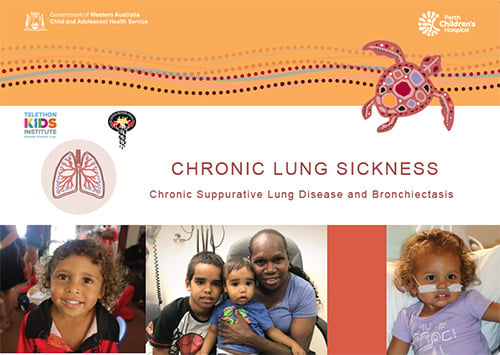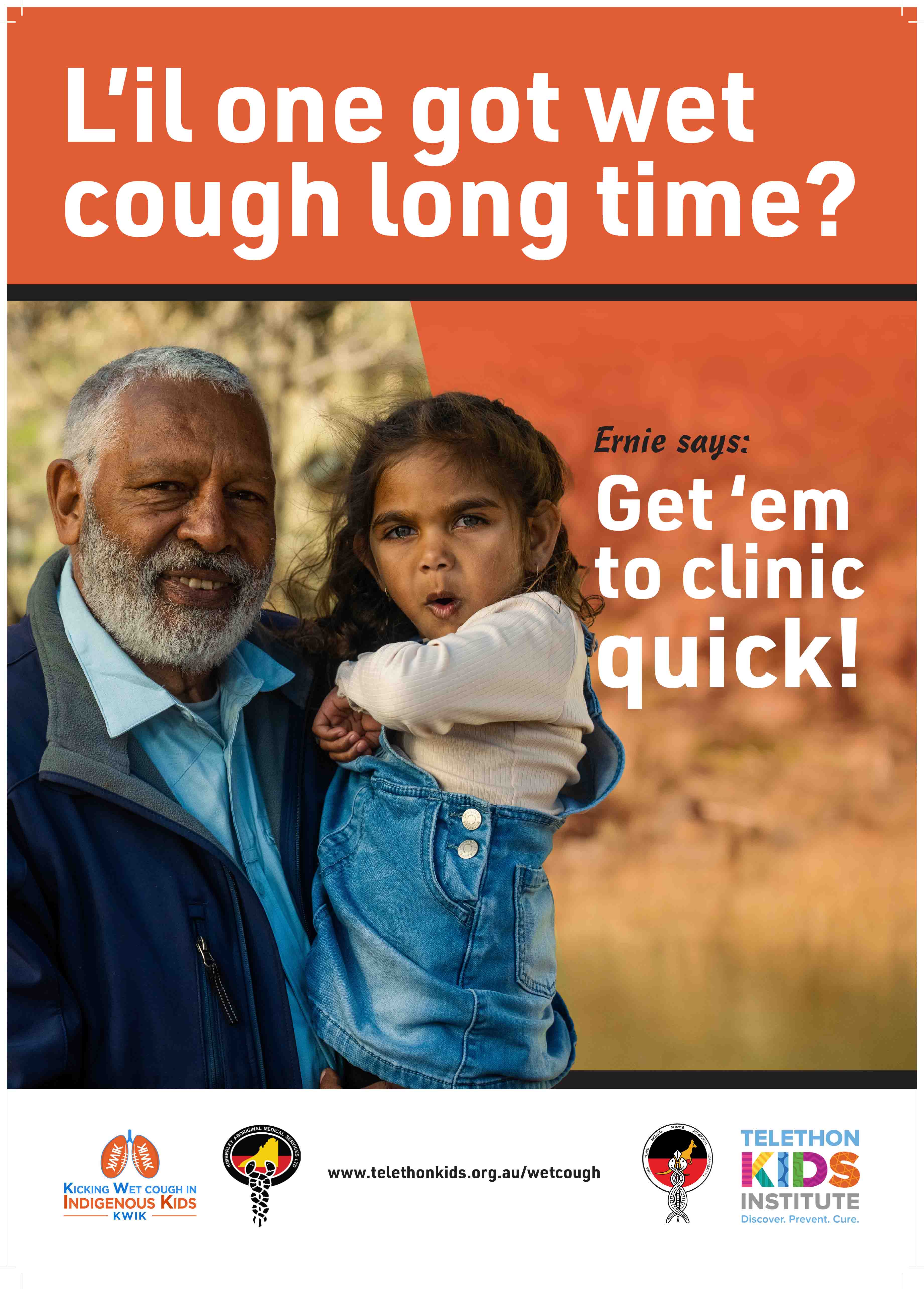Resources
Videos
- Watch the Wet Cough Video
- Watch the Wet Cough Video (Desert version)
- Watch the Flipchart yarning video
- Watch the Kicking Wet Cough video with Ernie Dingo
- Watch the Animated video (3min) - Kriol
- Watch the Animated video (30s) - Kriol
- Watch the Animated video (3min) - English (desert communities)
- Watch the Kick This Wet Cough video
Radio
- Listen to Radio ad with Francis Watson 1
- Listen to Radio ad with Francis Watson 2
- Listen to Radio ad with Francis Watson 3
- Listen to Wet Cough Audio (M4A, 210KB)
Flipcharts
- View the Acute Lung Sickness Flipchart
- View the Chronic Lung Sickness Flipchart
- View the Chronic Lung Sickness Flipchart (KRIOL)
- View the Chronic Lung Sickness Flipchart (KUKATJA)

Other
- View the Guide to our Wet Cough Resources
- Visit the Wet Cough Facebook Page
- View the Chronic Wet Cough Flowchart
- Download the Wet cough posters with Ernie Dingo (3 versions)
- Download the Wet cough info sheet (flyer)
- View the Wet cough storybook
